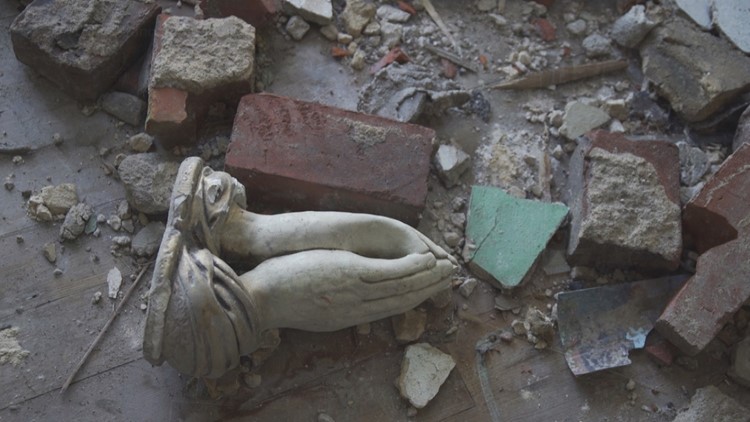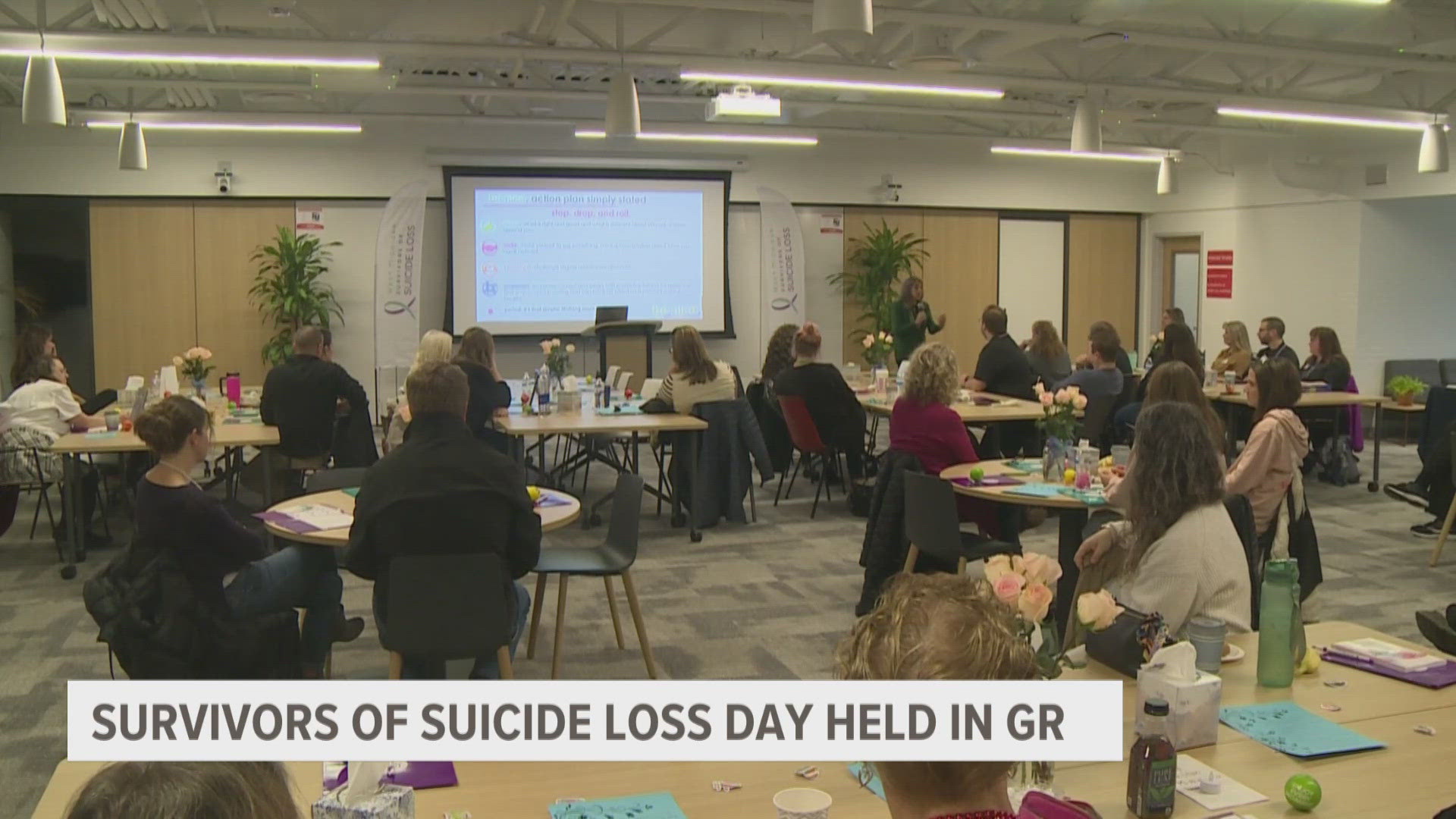GRAND RAPIDS, Mich. — Relief work continued throughout the disaster-stricken American heartland in the aftermath of last week’s tornado outbreak Tuesday.
As restoration efforts proceeded, for those who lost loved ones, their homes and businesses, the notion of recovery remained a distant goalpost.
More than 400 trained relief workers had been dispatched to the hardest hit areas to shoulder some of the burden as of this week, according to the American Red Cross.
Several among them hailed from West Michigan, including at least one Grand Rapids nurse who didn’t hesitate to respond.
Louise O’Donnell will have to do without the brightly colored presents under the tree back home in Grand Rapids this Christmas.
Stationed in the heart of disaster-stricken Mayfield, Kentucky through the New Year, the American Red Cross nurse expected all work and little play.
“Is there ever this sense of where do I start?”
“Absolutely,” O’Donnell replied. “The whole community didn’t just lose buildings. They didn’t just lose belongings. Everybody lost somebody.”
The number dead across the affected area, which spanned eight states, had risen to near 100 days after the disaster.
The shattered buildings, shattered lives and epic struggles will long outlive the EF-3 that tore into the city of Bowling Green December 10, one of the more than 60 tornados the National Weather Service confirmed would spawn that evening.
The American Red Cross confirmed relief efforts and aid distributed to date included:
- 470 trained relief workers dispatched to multiple states
- 27 independent shelters in operation across Kentucky
- 28-thousand meals and snacks
- 16,700 relief items
- 3,800 individual care contacts
Working in rural communities accustomed to fending for themselves, O’Donnell said, came with a set of challenges all its own.
“The people of Kentucky are incredibly resilient,” she said. “A lot of the folks are going, you know, I don’t need the help. How about you share it with somebody else.”
O’Donnell said she had taken to combing local newspapers as part of her work cataloging the dozens of lives lost.
Still, the tell-tale signs of progress--gradually improving the still desperate situation on the ground—offered some solace.
“It's now safer for people to move around to get to the second level of cleanup and recovery,” she explained. “It's absolutely amazing. The resilience and the community pulling together is just incredible.”
The American Red Cross said the need for blood donors, amid a historically low supply, remained urgent.
The organization also urged those interested in contributing to the relief effort financially to call 1-800-RED-CROSS or text the word REDCROSS to 90999.



